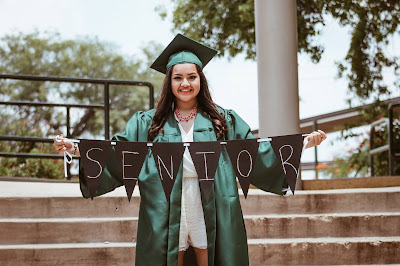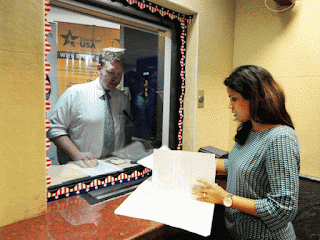Important advise to foreign students who want to study in the USA
Advise to students who want to study in the USA
Life in the USA is not as easy as you think
Some years ago, we helped a student to get a US student visa to study in the USA. She studied at a university in Texas and she's among many of such clients (students) that we've worked with in the past.
She graduated long ago but got married in the USA to a naturalized US citizen. They have many kids together already.
I saw her sometime ago and I was very happy to see her.
When I saw her, I asked her one question.
The question was: what advise do you have for any student who want to travel to study in the USA?
The advise she shared with me is so realistic that I actually adopted it as a message to my clients (students) who want to study in the USA. I woke up this morning and I decided to write it down so that I can relay her message to my readers and any foreign student out there who wants to travel to study in the USA.
She said:-
1). Life in the USA is not as glamorous as it has been presented to you in Hollywood movies unless you're from a wealthy family and you have a lot of money.
Note that I am not saying this to discourage you from coming to study in the USA but I am only preparing you mentally on what to expect, so that you don't get shocked when you get here.
Money doesn't grow on trees in the USA. You'll still have to work very hard here if you want to make it. The only difference is that you stand a better chance of making it here than in most countries. But it still takes hard work.
Make sure you can pay your rent or you have a rent free arrangement either by your school or your relatives or friends and associates. Its been a couple of degrees below 0c (0 degree) in Maryland for some days now. You don't want to be homeless out there in the cold.
Before I forget, make sure that you have money enough to at least pay for your first semester because if you don't, your school may inform the department of homeland security, who'll in turn inform the immigration. If this happens, you could be deported back to your country faster than you think.
If you run out of money, there are solutions. There are things you can do to get financial help.
2). If you're coming here with the impression that you'll get a job to pay your school fees, I am sorry, you won't.
The only job you can get as a student in the USA is on-campus jobs which pays low wages of about $10 to $15/hour, and you're only allowed to work 20 hours per week, which means the maximum salary you can earn in a month is $800 to $1,200 even if you work everyday.
This amount would just be enough for you to eat and probably pay your house rent if you live off campus and you're super frugal. The cheapest house rent in the USA goes for about $500-$600 per month, depending on the city.
Bottom line: No matter how hard you work, you'll never be able to pay your tuition in the USA by OFFICIALLY working.
Having said that, we have a way to get around it without violating the law. If you want to work and pay your tuition, we'll show you how to do that online without violating the law of the school. In fact, we'll employ you if you have what it takes. For details, see market our products online and earn money. We'll pay you in Bitcoin. This way, nobody would know what you do to get money in school. The comment in BOLD is mine.
3). There are scholarships out there even for international students. If you apply and they say you`re not eligible, please try again. The worst they can do is say NO. They can`t beat you for asking for scholarship many times. My junior brother got a full scholarship when I made him ask. But he was initially hesitant to ask. Ask first!!
4). In the US, there are no big network of public transportation as you have in London and other major cities around the world, so you'll need a car when you get here unless you'll be in New York, then you may get cheap train ride.
But then, house rent is costly in New York. What am I trying to say? You better come with money enough to get yourself a car, otherwise, you won't be able to move around unless you have someone who would drive you around town to wherever you want to go.
With $3,000 or less, you can get a used car at the auction. This would solve all your transportation problem. If you want to start driving as soon as you get to the USA, make sure you get an international driver's license in your home country before coming here.
It would be much easier for you to get a US driver's license if you come with an international driver's license.
5). When you arrive here, get your student ID immediately, driver's license or other US issued IDs that you can use to identify yourself around town when necessary.
Moving around with your international passport won't be a nice idea unless you're from a country like Australia, UK, Canada. There's a reason for that but never mind.
6). Whatever you do, never you fall out of your visa status because if you do, you could be deported back to your country as you'll no longer have legitimate reason to live in the USA.
Let me say it again, ask your school if they have a scholarship offering, loan or anything to help yourself or ask for a deferred payment plan which would allow you to pay in installments, instead of paying full fee at once. Go to your International student coordinator for inquiries if you ever get into financial trouble.
7). Never, I repeat, never you expect your friends and relatives in America to pay your tuition. I am a mother of 3 kids, daycare for all 3 of them is $2,160 a month. Day care alone!!
I am not going to take a second job to see a family member through graduate school. The best my husband and I can do is to provide food, shelter, clothes, transportation and pay for books. Come to think of it, that`s a lot from your "American relative".
8). Be that brilliant student. It's easy to make a GPA of 4.0 out of 4.0. This is considering you are not eligible to work and you should have all the time in the world to study.
When you make that high GPA, ask your department chair if they can offer you a graduate assistant position or a research assistant position. You'll be surprised how much a 4.0 GPA can do for you.
9. Some schools, maybe not all but some schools do allow international students to work 20 hours a week within the school. Look around the school for such opportunity. Get a job at subway cheesy, library, canteen, it would put some money in your pocket. If you don`t get one as soon as you start your studies, keep checking and don't try to look good. In the US no one cares.
However, if a serious lack of money threatens your education, you may talk to your school to give you special permission to work outside the school because you can get a better job off-campus. All these options are always there if you ask. Just ask first!!
10. In all things, use your brain.
That's the end of her advice, and I hope you've learned a thing or two.
 Send, Receive and Withdraw, no matter your country
Send, Receive and Withdraw, no matter your country
If you're a foreign student preparing to go for a US student visa interview, here's the complete US student visa interview questions and answers PDF. It's a list of ACTUAL questions asked during past US student visa interviews, plus ACTUAL answers supplied by students who successfully got their visa to study in the USA. It costs USD 19 only and that's all you need to learn how to get your visa.
Before I leave, here's how to go from F1 student visa holder to Green card holder to US Citizenship.
Get more travel abroad eBooks at order Study abroad eBooks and B1/B2 visa eBooks













Comments
Post a Comment